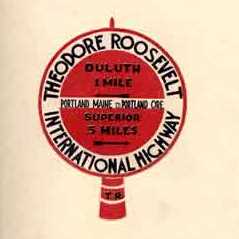The USS Theodore Roosevelt is a proud symbol of American strength and the selfless service of our armed forces in preserving our freedom. However, a nation’s true strength is found in the commitment of its people to their fellow citizens and their nation as a whole. This is doubly true of the America of TR, who stood for both democracy and equal opportunity for all. While it was often an ugly process, Congress actually considered and occasionally passed legislation consistent with TR’s ideals and deserved the support of American nationalists.
Congressional Gold Medals for Capitol Police
This Congress convened amidst an attack by a rebellious mob that came perilously close to overthrowing a newly elected president during the certification of the electoral count. The Capitol Police bore the brunt of the attack and defended congressmembers with conspicuous bravery. The House and Senate recognized their service to the nation by voting to award them Congressional Gold Medals.The Senate vote was unanimous and the House roll call vote can be found here:
https://clerk.house.gov/Votes/2021161
Every true American nationalist should agree and salute them as well.
Bipartisan Infrastructure Bill
We have lived with the decline in our national transportation infrastructure for decades. As I discussed in this previous post, Congress finally took action when it passed the Infrastructure and Jobs Act (HR 3684) more commonly known as the Bipartisan infrastructure bill. The links to the House and Senate Votes are
House Vote : https://clerk.house.gov/Votes/2021369
Senate Vote: https://www.senate.gov/legislative/LIS/roll_call_votes/vote1171/vote_117_1_00314.htm
CHIPS Act
The COVID pandemic exposed dangerous gaps in the supply chains of our basic industrial materials and human needs products. The shortage of domestically produced computer semiconductor chips that are key components of almost every product led to the passage of the CHIPS Act (HR 4346), which will jump start the production of them in the US. The bill also makes important investments in research and technology education. Here are the links to the votes in the House and Senate:
House Vote ; https://clerk.house.gov/Votes/2022404
Senate Vote – https://www.senate.gov/legislative/LIS/roll_call_votes/vote1172/vote_117_2_00271.htm
Economic Security
Congress voted on several other bills to address supply chain shortages threatening our economy. HR 4476 would have created an Office of Trade & Economic Security in the Department of Homeland Security charged with monitoring critical supply chains and coordinating a response to potential issues. It passed the House but died in the Senate. The House vote can be found here:
https://clerk.house.gov/Votes/2022112
Finally, the House and Senate considered a bill called the America COMPETES Act, a predecessor to the CHIPS Act which would have created a Committee on National Critical Capabilities to monitor and prevent the transfer of vital American technology to China and other foreign adversaries. The bill passed in both Houses of Congress, but differences in the text were never resolved. The two votes can be found here:
https://clerk.house.gov/Votes/202231
https://www.senate.gov/legislative/LIS/roll_call_votes/vote1172/vote_117_2_00109.htm
Conclusion
Theodore Roosevelt was a paragon of personal resilience and knew America needed to be resilient to be a truly strong (see this previous post). As we head to the polls, let us reject many politicians calls to division and ease and, instead, recommit ourselves to building the nation and the people that TR envisioned. Remember to vote and God bless America!


